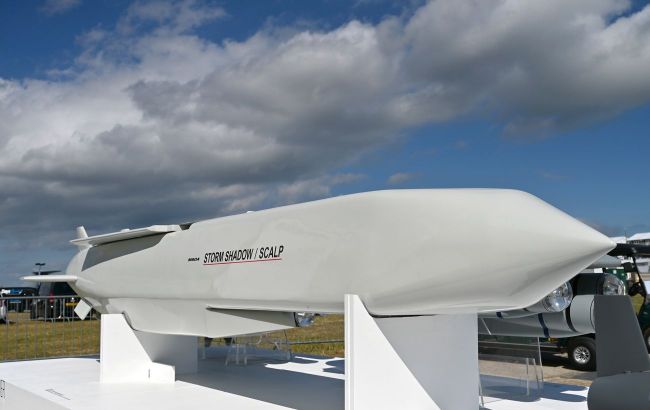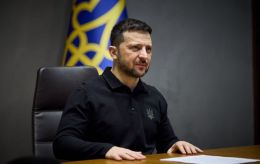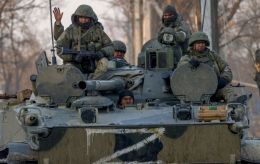500 DPRK soldiers, Russian officers killed in Ukraine's Storm Shadow strike on Maryino, media says
 Illustrative photo (Getty Images)
Illustrative photo (Getty Images)
As a result of the Storm Shadow missile strike on the Kursk region, 500 North Korean soldiers were killed. 18 Russian soldiers could have been killed, according to Global Defense Corp.
Analysts cite the Telegram channel Dosye Shpiona, reporting that during the strike, Storm Shadow missiles hit the sanatorium of the Russian Presidential Affairs Directorate in Maryino, Kursk region.
According to the Telegram channel, 18 Russian servicemen were killed and 33 wounded. Among the dead are many Russian officers from the Southern and Eastern Military Districts.
The death of the First Deputy Commander of the Leningrad Military District, Lieutenant General Valery Solodchuk, was reported. In 2014, he commanded the 1st Army Corps of the so-called DNR (separatist forces) during the Russian invasion of Ukraine.
500 DPRK soldiers were also killed in the missile strike. According to the Global Defense Corp, three North Korean soldiers were wounded - two male officers and a woman. She was initially identified as a medic. Sources say she could have been an interpreter.
13 more Russian sappers, including the deputy chief of staff of the 88th Mechanized Brigade, were injured while clearing unexploded ordnance at the site of the missile strike.
“The presence of such high-ranking personnel during the post-strike cleanup may indicate that the casualties extended beyond officers and a single general,” says the article.
The first use of Storm Shadow in Russia
On November 20, Bloomberg wrote that the Ukrainian military had launched Storm Shadow missiles at Russia for the first time. Reports online said that the village of Maryino in the Kursk region was hit.
The Defense Express said that the target could have been an object of Russian President Vladimir Putin. It was the Baryatinsky estate.
According to analysts, the estate is home to an underground command post of the Russian troops in the Kursk region and North Korean generals.

